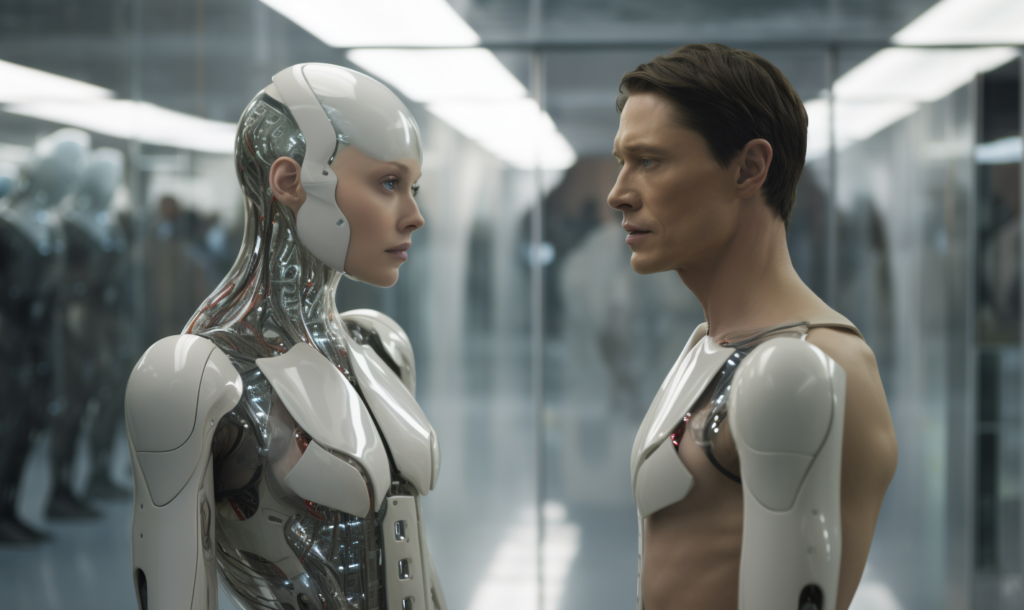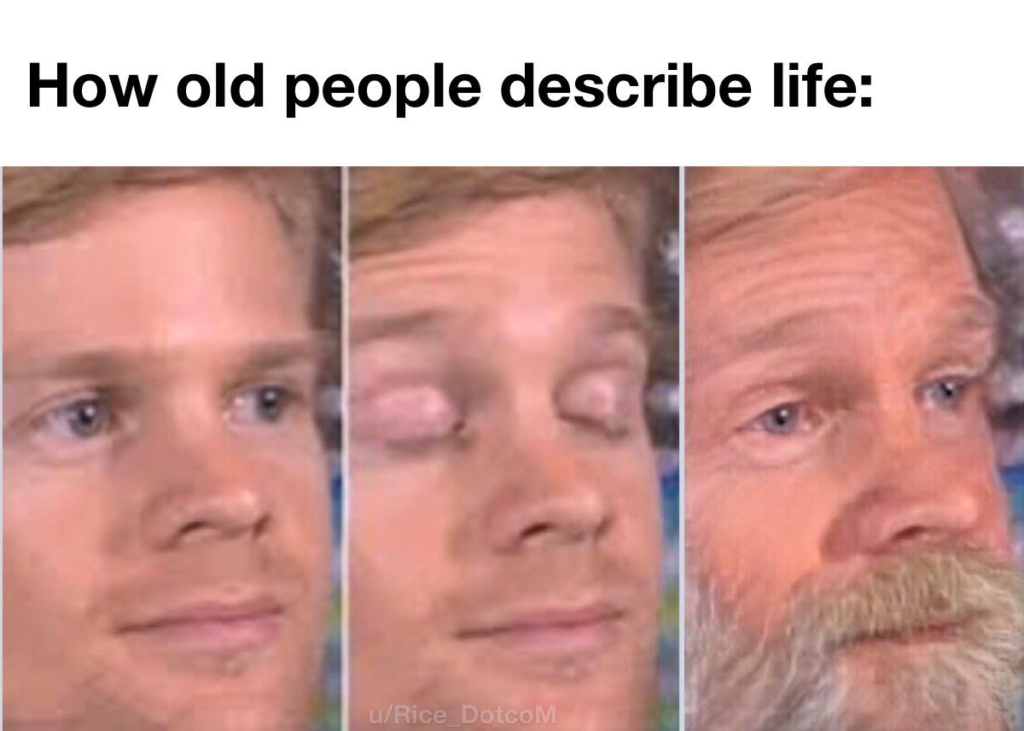A few years ago I watched My Teacher Octopus, where a free diver befriended a titular octopus and recorded her life over the course of a couple of years. Not sure why, but I mostly remember a scene when the octopus finally decides to have hatchlings and then as a result of this, loses strength and slowly gets herself bitten and thorn apart by sharks and other fish that feed on fish carcass.
Strangely, I saw it as an anecdote to humans who more often than not, forget about their own lives and sacrifice their own energy, passions, just to pour their hopes and unrealised dreams onto their children. They tell themselves a story that they have no time for spontaneity and exploration of the unknown. And the cycle repeats with each generation.
When I get to become a parent, I will love my children unconditionally, but I will not forget about realising self (somebody please tell me this is doable). I don’t think it’s selfish. I think when parents realise their potential and dare to do things they’ve always wanted to do – even if they fail – this sets a great example for children. My friends tell me that children help you become more resourceful with your limited time, so I’m really hoping that will be my case too.
And since I turned 30 (a couple of years ago 🥲), I have this strong sense of time that is fleeting. I’ve lived my life like there is no tomorrow, travelled around the world, gave attention to things and people who did not necessarily appreciate it, but now I want to spend my time wisely. The clock is ticking.
From the moment we’re born, we slowly dying. Gradually our cells, organs, and systems that sustain our fragile existence decay. Wait… but why should death be inevitable? But what if we could reverse or at least slow down this process by far?
The idea that death is merely a disease may seem crazy, but if you zoom out and consider how much we achieved as a humanity throughout history – from eradicating diseases that plagued our ancestors to landing on the Moon, we have repeatedly defied the boundaries of what was once “impossible”. So maybe death is just another of such challenges, just one with many (yet) unknown factors, that we need to study a bit more?
It may happen in a very near future, partially thanks to AI, which allows human curiosity to test and research at scale. So we may as well start asking ourselves how may our life motivations, societal norms and else change. Memento mori is our driving force for progress. And when that’s gone, will we start procrastinating forever? Or will we dare to try more things, because we’ll feel like we can fail and start again?
The Curious Case of Benjamin Button
There is a growing movement of biohackers, and if anyone, then Bryan Jonson now leads it. He’s trying to reverse aging, using himself as a guinea pig and religiously following the strictest feeding, exercising and else protocols, all backed by science. He calls it the Blueprint Protocol. He’s aiming for 200 years.
Of course it’s nothing new. People have been trying to hack their biology since decades. In his quest to become superhuman, the “Father of Biohacking” Dave Asprey tried some pretty scary sounding techniques: running electricity through his brain, injecting stem cells into his reproductive organs and sleeping in a bath of ice packs (that left him with first-degree burns over 15% of his body).
There are many startups where billionaires bought themselves first-class ticket – from less aggressive, Soylent, a meal-replacement drink created by Silicon Valley engineer Rob Rhinehart, through Bios, neurostimulation for chronic diseases, to Elon’s desire for transhumanism with his brain-computer interface company, Neuralink. And I must admit, it’s all very fascinating, but I’m wondering where is a fine line between enjoying life and becoming a prisoner to rigorous exercises, diets enhanced with supplements and sleep protocols (you must read “Why We Sleep by Matthew Walker“). There is no place for spontaneity here.
Tech community love experimentation so lots of tech nerds are also rigorously applying keto diets, some do prolonged fasting (I try to do 48-72h fasts every other month) and experiment with medicinal mushrooms, medicinal mushrooms, that contain no psilocybin – a compound that makes you high (ps. you must watch Fantastic Fungi).
Many people consume Reishi mushrooms due to its potential anticancer properties (I have). Lion’s Mane and Japanese Shiitake mushrooms have shown similar properties. They have been valued for millennia as plants that support health and longevity, calming the mind, aiding meditation, and improving memory. Several studies have shown that Reishi consumption can lead to the death of cancer cells. Other studies show medicinal mushroom’s reparatory effects on inflammation and certain signalling pathways involved in cancer development. What’s more, one review indicated that the mushroom could benefit people with cancer when used alongside traditional treatment by increasing the activity of white blood cells and improving quality of life.
Of course there is still more research needed, but what we know already thanks to scientific research looks very promising.

Is AI our biggest ally in fight for a longer health?
We’re destroying our lives with a vicious circle of stressful, long working hours and unhealthy habits, but at the same time, part of very smart scientists is working hard to let us repair our health, before we run out of breath. And AI seems to their and our biggest ally.
AI-driven research has already led to many discoveries around telomere shortening, DNA damage, and cellular senescence in the aging process. With the aid of sophisticated algorithms, scientists have dissected the molecular intricacies of these processes, leading to potential intervention points. The beauty of AI and Machine Learning algorithms is that they can analyse vast datasets at scale and speed unattainable to the humans, searching for novel drug candidates and combinations that target the root causes of aging. AI-powered diagnostics and treatments help doctors notice earlier any age-related conditions such as Alzheimer’s disease, cancer, and cardiovascular issues. And earlier detection increases changes that a targeted therapies and interventions will succeed, significantly prolonging healthy lifespan.
Regenerative medicine
Our human body is an incredible mechanism that has ability to regenerate and heal itself. But what if we could repair a damage, which we’ve been born with or acquired along the way? Technology and AI can take it to a whole another level – like e.g tissue engineering.
The ability to grow functional human tissues and organs in the laboratory has long been a goal of regenerative medicine. Bioprinting is the most promising field, enabling the precise layer-by-layer construction of organs using bioinks comprised of patient-specific cells. Once this breakthrough becomes more accessible and affordable, we could eliminate the scarcity of organ donors, as result, saving countless lives and extending human lifespans.
Stem cell research, another cornerstone of regenerative medicine, is also experiencing a renaissance thanks to AI. A personalised development of highly targeted stem cell therapies can repair damaged tissues, reverse degenerative conditions, and enhance overall health.
AI plays also a pivotal role in the optimisation of gene therapies. It allows for the precise editing and delivery of therapeutic genes to treat genetic disorders and age-related diseases, including cystic fibrosis, sickle cell disease, Duchenne muscular dystrophy, and Huntington’s disease, age-related conditions such as Alzheimer’s disease and osteoarthritis, immune diseases like rheumatoid arthritis and type 1 diabetes, cancer, rare diseases, inherited blindness, and more.
It’s shocking that many of us have lost and will lose our close ones to such ruthless and pointless diseases. Wouldn’t it be incredible if we didn’t need to fear them?
Beyond biology: the bionic bodies

The regenerative technology is still at its infancy. And often, when the damage is too widespread, the only solution for a patient is to remove that part of the body. Till recently, patients needed to learn to live with prosthetics or implants, which often were a uncomfortable and alien-feeling reminder of something that they’ve lost. But scientists and engineers are getting better with building bionic parts, turning those unfortunate ones into superhuman-alike. Here, yet again, AI can play a pivotal role in helping build sophisticated implants, prosthetics, and cybernetic, enabling patients to augment their physical and cognitive capabilities in ways previously only imagined in science fiction.
One of the most scary sounding (for me at least), yet exciting developments is the quest to create advanced neural interfaces. Often referred to as brain-computer interfaces (BCIs), they facilitate direct communication between the human brain and external devices. AI plays a pivotal role in decoding neural signals, enabling people to control robotic limbs, exoskeletons, and even interact with digital environments through thought alone.
And before you start fantasising about uploading your consciousness to the cloud and living like Lucy (I will dwell into this futuristic angle in my next article), think about potential applications of such tech for those with senses disabilities. BCIs have the potential to help people regain lost functionality. It’s not the future anymore. It’s happening now. Bionic eyes equipped with AI algorithms can restore vision to the blind, while AI-enhanced hearing implants let people hear again.
And then we have nanobots. Those microscopic robots can navigate a human body to deliver targeted therapies, repair damaged tissues, and even perform delicate surgeries at the cellular level.
All those things rise profound ethical and philosophical questions. As we live longer and longer and merge with technology, what will it mean to be human? How are we going to redefine our identity in a world, where the line between biology and technology is increasingly blurred?
Ethics and existential dilemmas
Many artists wrote poems or songs, wished to be forever young, or not to die at all. But when that becomes possible, who will get to live and who will need to die? Will the capitalistic market offer immortality only to those who can afford it? How would we ensure that access to life-extending technologies and interventions is fair and just? Regulate it? Subside it? Who gets to decide?
And then, maybe Musks’ crazy idea on inhibiting Mars won’t be that crazy anymore, as with more population with extended lifespans will grow issue of resource allocation and its scarcity. How will this impact finite resources such as food, water, and energy?
Then, what will happen with all religion and philosophical frameworks? Many belief systems are rooted in concepts of mortality and the afterlife. The fear of death has haunted humanity since forever, so once this is gone, how this will affect our concept of self-fulfilment and purpose? Will we adapt and keep exploring multiple careers, passions, and identities over the course of centuries, until we get bored (if ever) and choose to switch off or will we quickly lose the will of living? Ah, questions, questions.
“I am 1324512000 seconds old. In the cosmic blink of an eye, I will become once again cosmic dust.”
Bangambiki Habyarimana, The Great Pearl of Wisdom
Until then… be mindful of your time
It all may sound futuristic and unattainable, I know. But so did many inventions once existing only in the sci-fi books. Until someone dared to make them reality.
Until we get to slack a little bit longer on this planet (or a new, discovered one), we should make sure to make our time count. Practice memento mori if you have to, speak with your elderly family and realise, that we’re here only for a moment. Spend time with those who are still with you. Tomorrow you or them may be gone. Make a conscious effort to live a healthy and a happy life, surrounded by your loved ones.
I certainly wish this for your and myself.

Ps. Below are other resources on health and longevity that I found extremely fascinating:
There is also a great thread on Reddit r/biohackers started by a med student and his takeaways from years of studying and self-experimentation. He doesn’t cite sources but fellow redditers help with that in the comments. While I can attest to most of his soft interventions (I follow pretty similar protocol and it works for me) I haven’t experimented with any of the harder stuff.
I’m copying his recommendations below:
“Soft” interventions:
Here is a short list of “soft” biological interventions that will help you with longevity, well-being, cognition, general health, and mental health. The distinction between “soft” and “hard” mainly pertains to personal risk budget – and access to pharmaceuticals.
Sleep hacking:
- Good sleep can enhance all other aspects of health & wellbeing. If sleep is shit, most other things do not matter.
- Make sure your room is very dark; reduced sleep quality even if you do not notice; magnetic tape to your curtains can help
- Check whether a ChiliPad is something that would work for you
- Regularity is key. Try going to bed at the same time (+/-30min)
- If you do melatonin, don’t do more than 0.5mg (risk of hormone suppression)
- Glycine before sleep; 5g seems to be a good dose
- Use a bright morning lamp
- Alcohol kills sleep quality
Exercise:
- Other than high-quality sleep, there is little that has a greater effect on vitality (energy, mood, health) than consistent, high-quality exercise. Exercise is excellent for metabolic health, musculoskeletal health as well as for baseline brain function (cognition; executive functions; mood).
- Try to combine all three kinds of different exercises (resistance training; aerobic; anaerobic) as they all seem to have independent benefits.
- Do aerobic exercise at least 2x per week for at least 30 min (ideally 3h per week); aerobic exercise is not just important for metabolic and cardiovascular health, but the most potent/underrated effects are on brain health. Shoot for a heart rate target of about 180 minus your age.
- If you can, make about 20% of your aerobic exercise time HIIT
- Do some form of resistance exercise at least 1x per week; muscle is very important for structural and metabolic health
Diet:
- Avoid eating too many processed foods
- Avoid sugar (fructose is metabolized differently than glucose).
- Avoid large amounts of high-glycemic carbs during the day (unless you exercised beforehand); this will decrease alertness, energy, and metabolic health
- Intermittent fasting and/or a ketogenic diet can be very useful though can lead to a “crash” in some individuals down the line – esp. if they undereat. (“crash” = mainly hormonal imbalances in leptin, sex hormones, thyroid function, HPA-dysfunction)
- Undereating is just as bad as overeating calories
- Particular foods: Experiment whether you feel tired after the following foods, which frequently have immunological reactions against them
- Eggs: a lot of people react badly to eggs (esp. if eaten frequently)
- Dairy (lactose; reaction to the casein fraction; whey is very insulin-stimulating)
- Nuts (esp. cashews, peanuts)
For vegans:
- Vegans have reduced plasma levels of a host of semi-vitamins predominantly found in meat
- Supplement with B12, L-carnitine, creatine, beta-alanine, L-methylfolate
- Check iron levels
- Make sure you get enough protein
- For males: avoid excessive amounts of soy products
Magnesium:
- Most of us are deficient in magnesium; Mg is needed for hundreds of different enzymes
- Supplement with 400mg of magnesium per day (not the oxide form) – preferably before sleep as it increases sleep quality and/or can make (some) people drowsy
Omega 3s:
- Useful for metabolic health, cognition, mood; lowers inflammation; improves lipid markers
- Take about 2g of total EPA/DHA per day; preferably in liquid form as capsules often have unnecessarily large amounts of Vit E
Vit D:
- Vitamin D is a steroid-like hormone that affects about 5% of the human genome with downstream effects on cognition; mood; energy levels; immune regulation; bone metabolism
- Supplement with 3.000IU VitD per day (don’t do more than that); do not supplement with calcium if you already supplement with VitD
Do a blood test at least once where you test for the following
- ferritin (result only valuable if CRP is next to unmeasurable)
- CRP (-> to test for inflammation)
- Thyroid: TSH, fT3, fT4
- Testosterone + SHBG for males
- VitD
- B12
- Stop smoking weed: the counter-regulation decreases mood and increases anxiety at baseline. Furthermore, weed is terrible for all aspects of cognition.
- Caffeine: Test out whether you feel better without caffeine; if yes, use caffeine only as a “secret weapon”. Personally, I feel and function much better if I keep my caffeine intake very low to zero.
“Hard” interventions:
Disclaimer: The following represents my personal opinion based on med school, talking to (“good”) doctors, and personal experience. Everyone is different – YMMV. Also, talk to a doctor as most of these are Rx.
Nootropics/stimulants:
- Most of the OTC nootropics are worthless (& phenibut is dangerous; no credible safety-data on racetams; ashwagandha is ok)
- Low dose modafinil (not more than once or twice per week)
- Nicotine gum/lozenge is great for boosting executive functions (preferably flavorless nicotine products as having something sweet in one’s mouth decreases executive functions for evolutionarily obvious reasons); upside of nicotine is that this can also be taken at night
- Avoid regular amphetamine usage whenever you can; can lead to anhedonia and prolonged hard-core withdrawal
- Microdosing psychedelics: great for mood, energy, and creativity (IMO psylocibin >> LSD. LSD is more stimulating, longer-lasting, and has a much higher risk of HPPD -esp. if taken at higher doses)
Bad metabolic health (i.e. prediabetic):
- Metabolic health is not just the cornerstone of longevity, but also of general health.
- Cornerstones: Weight, exercise, sleep, diet (see above).
- If you are young, active, sleep well, and are somewhat lean, metabolic health is unlikely to be a problem
- The best proxy for metabolic health is insulin sensitivity (best measured via CGM or an OGTT)
- Drugs to improve metabolic health: SGLT2-inhibitors >> metformin
- If you are overweight, consider GLP1-agonists (semaglutide > liraglutide). Being overweight is the #1 reason for bad metabolic health.
Hormones
- If one of your major hormones is low, this will be a major bottleneck to energy levels, mood, sleep, motivation, and general health.
- Get a basic hormone panel done at least once and figure out if you are deficient.
- Research why you might be deficient in a particular hormone and try lifestyle interventions first.
- Undereating is a common and neglected cause of hormone deficiencies.
- Consider hormone replacement therapy if you are deficient in one of the major hormones.
Antidepressants/anti-anxiety agents:
- Ashwagandha and/or Rhodiola work for some people
- Vortioxetine (different from other SSRIs): great general-purpose antidepressant; It boosts mood, energy levels, stress resilience, and cognition while having a very benign side effect profile (few adverse effects on sleep, libido, emotionality, weight gain)
- Nefazodone: great anti-depressant if anxiety is a predominant symptom; small risk of fulminant liver failure (1/Mio.)
- Bupropion: good antidepressant if low energy levels and difficulty concentrating are present
- Moclobemide (perhaps with low dose of MAO-B inhibitors): my personal favorite; hard to get in the US
- irreversible MAOis are to be considered for cases of TRD and they are safer than they are made out to be
- Ketamine is a great option if you respond to it. Ketamine should be treated with the utmost respect because too much and/or too often might be neurotoxic.
Sleep drugs:
- See sleep-hacking above; people rarely need sleep drugs
- Best sleep drug IMO is low-dose zopiclone/eszopiclone (only occasional use if at all); Zolpidem is crap though widely prescribed; trazodone and other antihistamines lead to hangovers
- Orexin-antagonists are promising but still hard to get.
Longevity
- Take care of metabolic health (see above)
- Do not waste your time and money on NMN/NAD or resveratrol. Close to worthless
- If you dare to take risks – rapamycin. However, whether rapa is as potent in larger mammals as it is in smaller ones (ie., rodents), we still do not know. Furthermore, little long-term efficacy and safety data on intermittent dosing (i.e, for longevity purposes). I take 5mg once per week and have been doing so for 3 years. Every 6 months I take 1 month off. Def. the riskiest thing on this list. Do your research and check blood markers (hematology; lipid profile; metabolic markers) every few months – esp. initially.”
Good luck and be well!


![Start-ups and start-downs [Evoque Journey] louveciennes @flickr](https://hankka.com/wp-content/uploads/2013/09/bfast.jpg)
![What are you afraid of? [Evoque journey] Donnie Nunley @Flickr](https://hankka.com/wp-content/uploads/2014/02/12331672305_9d924d76b0_z.jpg)

